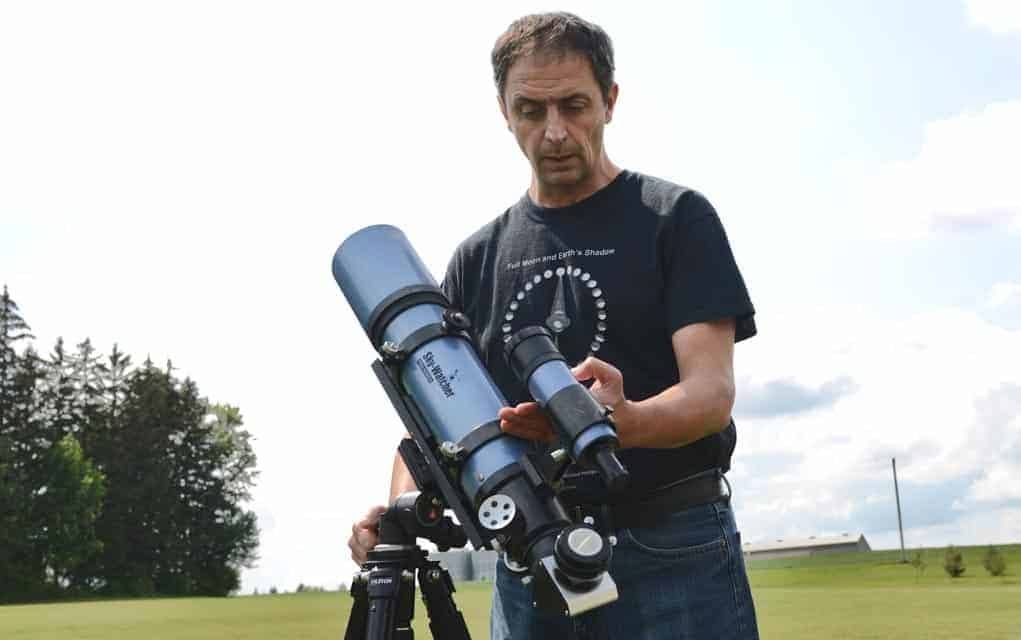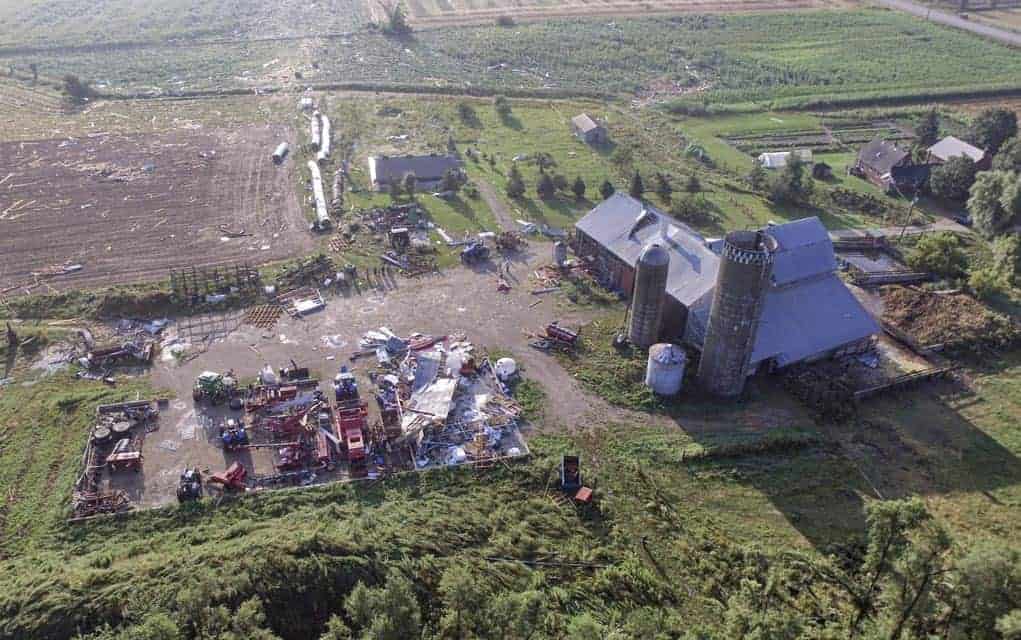Woolwich will be reviewing its emergency notification protocol in the wake of a tornado that touched down in nearby Hawkesville last week.
The township activated its community alert network (CAN) after officials learned of a tornado warning, later hearing that some residents hadn’t been contacted by phone, while others complained about the delay in getting the word out, said chief administrative officer David Brenneman.
On the heels of a flood in June that left some residents concerned about the timing of communication from the township, it’s natural for there to be questions, he added.
“Definitely, we recognize and acknowledge there is a sensitivity after the flood and the situation … that developed.”
Members of the West Montrose Residents’ Association, having raised concerns about communications following the flood, had a few issues.
“It seems that not everyone who had their number(s) ‘listed’ in the township’s warning system received a call. That’s troubling, given that the system failed during the June 23 flood, and we thought it was being fixed,” said Tony Dowling.
Woolwich officials received an alert from Environment Canada about 7:40 p.m. on August 11. At that point, they opted to sound the shelter-in-place sirens – currently active in Elmira and Breslau – and to send out messages via the CAN system.
The first phone calls went out about 7:58 p.m., said township fire chief Dale Martin.
At that point, however, the severe weather had passed, with an EF-2 (wind speeds estimated at 180 kilometres) tornado having touched down near Hawkesville in neighouring Wellesley Township. With more storm cells lingering in the area, however, officials didn’t broadcast an “all clear” message until about 10:30 that night.
The timing of the calls was an issue for West Montrose resident Chris Sabean.
“I received a call at 8:10 p.m. from the township that there was a tornado warning and to take cover. My family was already in the basement,” she wrote in an email to both Brenneman and Martin.
“Another neighbour, who three weeks ago had updated all her family’s emergency contact info with the township, didn’t receive a phone call at all. Some people received calls, and others didn’t.
“Another neighbour didn’t receive the warning call but she did get one at 11:15 p.m. to say the tornado warning was over. What good is that?” she asked.
Unlike flooding situations, where the township works with the Grand River Conservation Authority, Woolwich has no direct contact from Environment Canada when it comes to weather warnings, Brenneman noted. Instead, officials rely on the same text and email alerts available to the public.
That lag in receiving notifications, along with the time it takes to prepare the automated phone system with warning messages, accounts for the timing, Martin explained.
“It takes a bit of effort to do.”
Once the township decided to use the CAN system, some 10,000 phone numbers were dialed. The system does about 1,200 calls per minute.
While there were severe thunderstorm warnings in effect earlier in the evening, Woolwich activates its emergency procedures only when tornadoes may develop. That process is something of a backup to Environment Canada, which issues its warnings through a variety of mediums.
“That’s what we act on – just the tornado warning,” said Martin, noting severe thunderstorm warnings are fairly common. “People have to realize that ours is secondary to Environment Canada.”
Officials acknowledged that some residents reported they didn’t receive one or both of the automated messages, prompting a review. Likewise, the township will be looking into receiving better information about storms more quickly from Environment Canada, said Brenneman.
There will also be a discussion about installing warning sirens in communities beyond Elmira and Breslau. There is a disused one in St. Jacobs, but none in other settlements, he said, adding that there are talks with the other municipalities in the region to look at a joint program.
A similar review of procedures followed the June 23 flood that hit parts of the township, particularly in West Montrose and Conestogo. The province has announced funds will be available under its disaster recovery assistance program, but township officials have yet to hear from residents with questions about the program.









